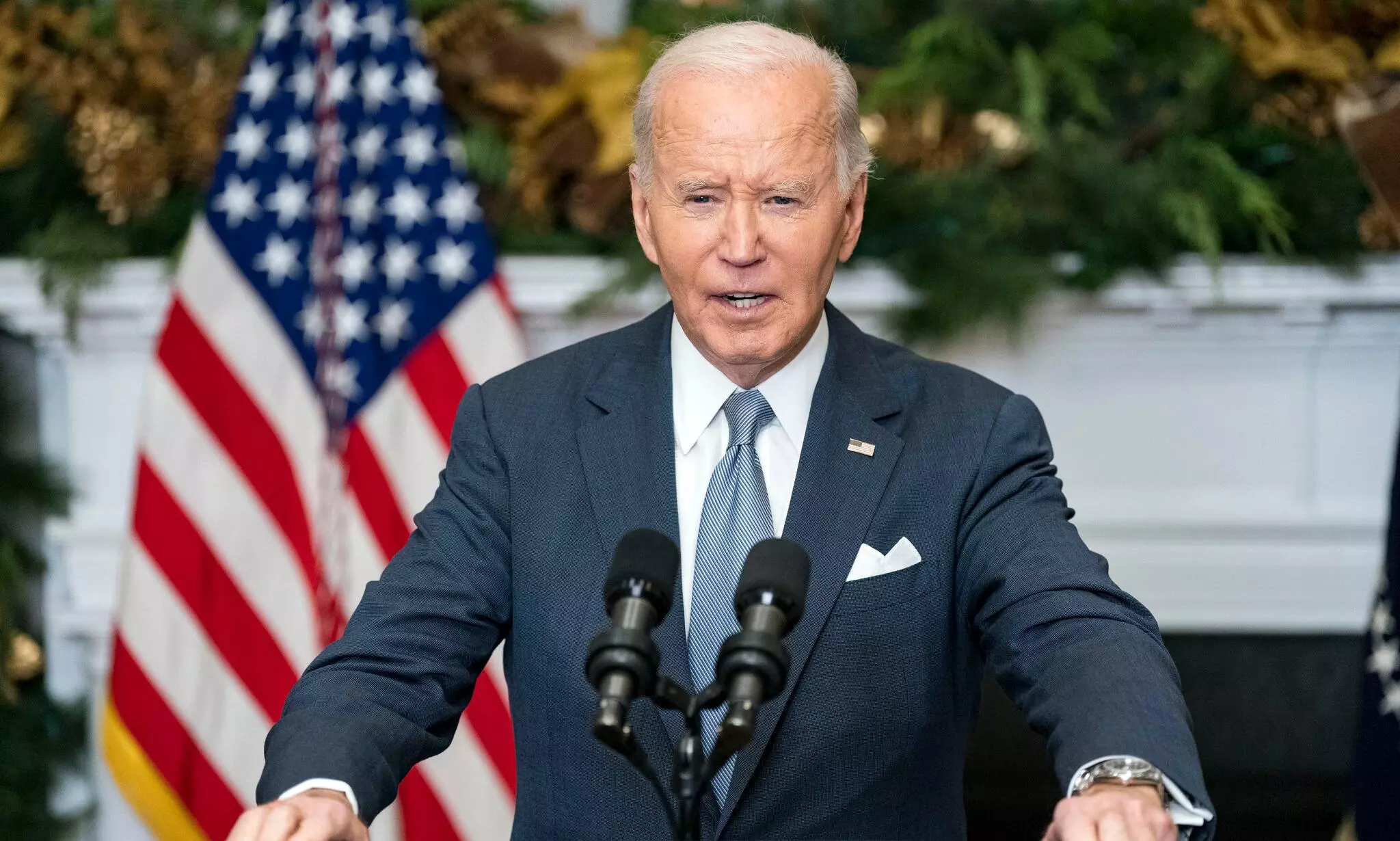
Biden orders airstrikes on ISIS in Syria amid post-Assad uncertainty
text_fieldsNew York: President Joe Biden’s administration has ordered airstrikes targeting Islamic State (ISIS) positions in Syria as the US navigates uncertainty following the rapid overthrow of Syrian President Bashar al-Assad. The airstrikes come in response to the potential risk posed by ISIS exploiting the power vacuum created after opposition forces captured Damascus and forced Assad into exile in Russia.
Biden emphasized that the US would not allow ISIS to exploit the current instability, underlining the commitment to preventing the group from regaining ground. He described the situation in Syria as both a historic opportunity for the Syrian people and a period fraught with significant risks, both within the country and across the region.
The US military has conducted over 75 precision strikes aimed at ISIS leaders, operatives, and camps as part of an ongoing mission to disrupt and weaken the terrorist group. General Erik Kurilla, head of the US Central Command (CENTCOM), stated that any groups in Syria partnering with or supporting ISIS would face consequences, reaffirming the US's stance on holding such groups accountable.
Biden highlighted that the end of Assad’s regime presented a critical opportunity for Syria’s future but acknowledged the challenges posed by Syria's volatile regional context, with borders shared with Iraq, Turkey, Jordan, Lebanon, and Israel. He credited US-led efforts for weakening Russia, Iran, and Hezbollah, noting their diminished ability to support Assad amid their struggles.
The ongoing situation is further complicated by Hayat Tahrir al-Sham (HTS), a rebel group with past ties to al-Qaeda, which played a significant role in Assad’s ouster. While HTS’s leader has claimed to sever links with al-Qaeda, concerns persist about how the group will govern, particularly regarding minority communities in Syria.
Secretary of State Antony Blinken emphasized that the US would assess HTS’s actions, rather than its statements, as it assumes greater responsibilities in post-Assad Syria. Meanwhile, Defence Secretary Lloyd Austin held discussions with Turkey’s Defence Minister Yasar Guler to address the evolving security dynamics in Syria, stressing the importance of coordination to safeguard US forces and their partners.
The US continues to support Kurdish groups in Syria, a stance that remains a source of tension with Turkey, which opposes Kurdish movements due to its security concerns. Approximately 1,000 US troops remain stationed in northern Syria, working alongside Kurdish fighters to counter ISIS, while US detention facilities for ISIS members remain operational to prevent the group’s resurgence.
With IANS inputs























